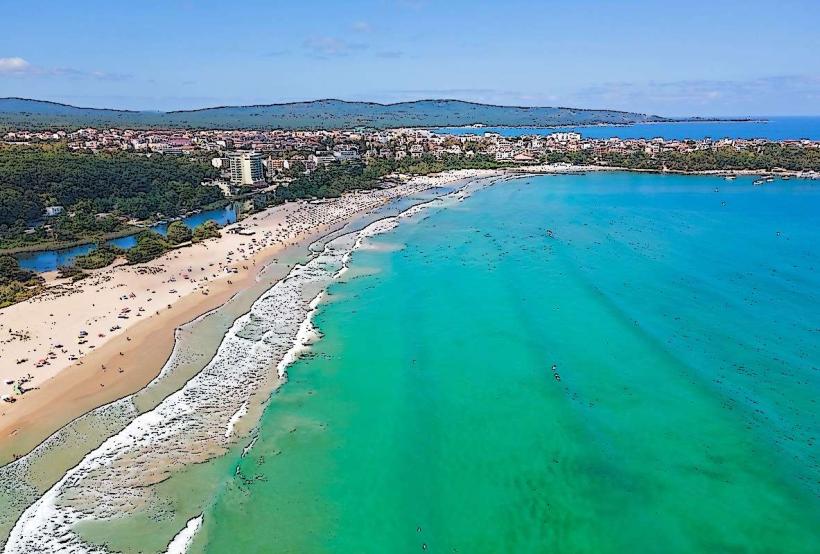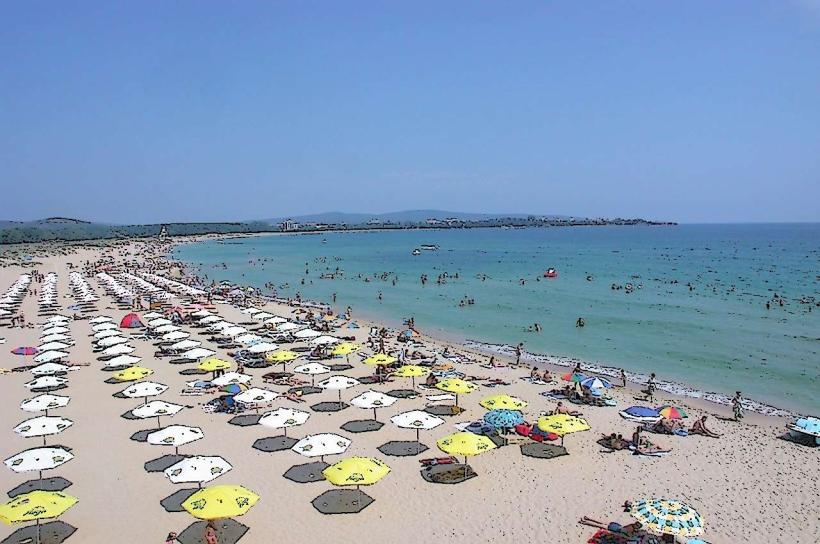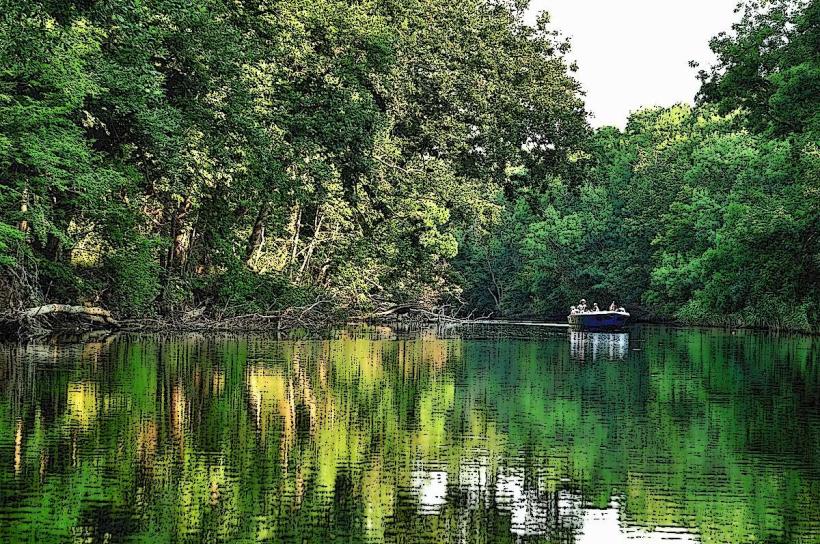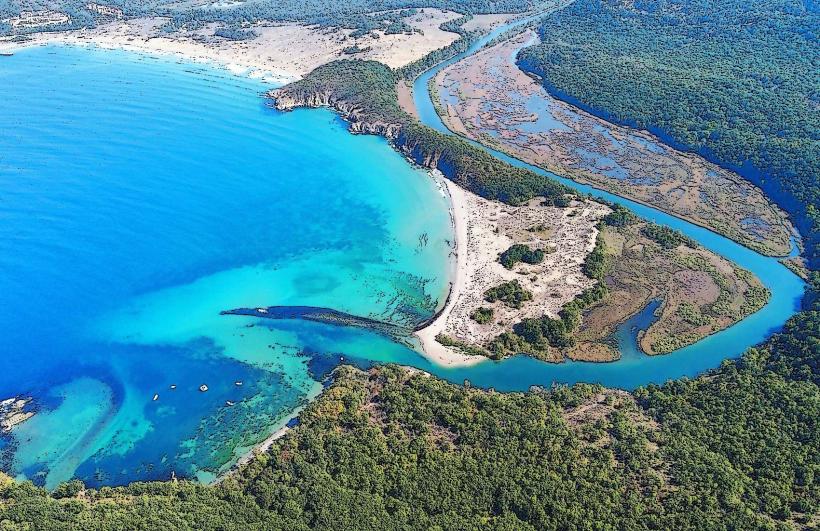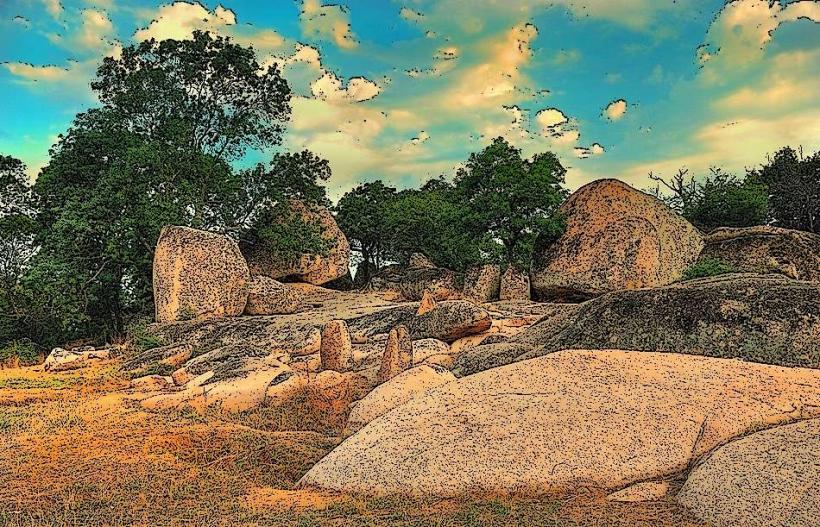Information
Landmark: Nature Reserve Arkutino (Bear Swamp)City: Primorsko
Country: Bulgaria
Continent: Europe
Nature Reserve Arkutino (Bear Swamp), Primorsko, Bulgaria, Europe
Arkutino Nature Reserve – Detailed Overview
Arkutino (Аркутино), also known as the "Bear Swamp" (Мечешкото блато), is a protected nature reserve located along Bulgaria’s southern Black Sea coast, between the towns of Primorsko and Sozopol. It forms part of the larger Ropotamo Nature Reserve and is one of the most ecologically diverse wetland systems in Bulgaria. The reserve covers a combination of freshwater marshes, sand dunes, lagoons, and forest ecosystems, all set against the backdrop of the Black Sea coast and the Strandzha Mountains.
Geographical Location and Terrain
Location: Arkutino is situated about 2.5 km northwest of the mouth of the Ropotamo River and 7 km south of Sozopol. It lies in the southeastern part of Bulgaria, near the coastal road between Sozopol and Primorsko.
Landscape: The reserve is nestled between sand dunes and coastal cliffs. A narrow strip of dunes separates the sea from a shallow freshwater swamp and marshland. These unique environmental layers create multiple microhabitats in a small area.
Altitude: The area is low-lying, with the wetland and lagoon areas lying just meters above sea level.
Ecological Zones and Habitats
Arkutino is remarkable for its compact yet highly varied natural zones:
Freshwater Swamp and Lagoon:
This is the central feature of the reserve-a shallow freshwater body that forms a swamp-lagoon ecosystem, not directly connected to the sea.
The lagoon is bordered by reeds (Phragmites), bulrush (Typha), and other aquatic vegetation.
In summer, the surface of the lagoon is covered with beautiful white water lilies (Nymphaea alba), giving the area an almost magical appearance.
Sand Dunes:
Separating the lagoon from the sea, Arkutino’s sand dunes are among the largest on Bulgaria’s coast.
The dunes are covered by specific dune vegetation, including sand lilies (Pancratium maritimum), rare grasses, and herbs adapted to the dry, salty conditions.
These dunes are crucial for preventing sea intrusion and maintaining the freshwater balance of the lagoon.
Coastal Forest and Shrubland:
Around the swamp and dunes, patches of oak, hornbeam, and Mediterranean-type shrub vegetation grow.
The forest zone is important for bird nesting and shelter for mammals.
Rock Formations and Nearby Capes:
The reserve also includes small rocky outcrops and cliffs, such as Cape Kaya, offering panoramic views of the sea.
Flora
Endemic and Rare Plants:
White water lilies (Nymphaea alba)
Sand lilies (Pancratium maritimum)
Marsh orchids (Dactylorhiza spp.)
Sea holly (Eryngium maritimum)
Dune and Swamp Plants:
Common reed (Phragmites australis)
Bulrush (Typha latifolia)
Beachgrass (Ammophila arenaria)
Wild thyme and coastal herbs
Fauna
Birdlife:
Arkutino lies along the Via Pontica, one of the major European migratory flyways.
It hosts over 200 species of birds, including:
Grey herons, purple herons
Little egrets, squacco herons
White storks, black storks
Glossy ibis
Marsh harriers and other raptors
Terns and kingfishers
Several species breed here, while others use it as a stopover during migration.
Amphibians and Reptiles:
Marsh frogs, tree frogs
Turtles (European pond turtle and Balkan terrapin)
Grass snakes and water snakes
Fish:
The wetland is home to Gambusia holbrooki (mosquitofish), a species introduced for mosquito control.
Native fish also inhabit the lagoon, including carp species and minnows.
Mammals:
Small mammals such as otters, foxes, hedgehogs, and wild boar can be found in the surrounding forest.
Tourism and Visitor Experience
Accessibility:
Visitors can reach Arkutino from the main road between Sozopol and Primorsko.
A wooden footbridge has been constructed over part of the wetland, allowing visitors to walk above the reeds and observe the ecosystem without disturbing it.
Activities:
Nature walks and light hiking
Birdwatching (especially during migration seasons in spring and autumn)
Botanical photography
Wildlife observation
Beach access: Just past the dunes lies Arkutino Beach, which is clean, uncrowded, and offers pristine natural scenery.
Guided tours are available through local eco-tour operators and sometimes through conservation organizations, especially during eco-festivals or nature-focused events.
Environmental Protection and Significance
Status: Arkutino is a protected reserve under Bulgarian law and part of the Ropotamo Nature Reserve Complex.
Ramsar Site: It is included in the Ramsar Convention list of internationally significant wetlands.
Natura 2000 Zone: It is also designated as part of the EU’s Natura 2000 network, aimed at preserving habitats and species across Europe.
Conservation Rules:
Camping, open fires, and unauthorized fishing are prohibited.
Entry is permitted only on marked paths.
Educational signage is placed around the reserve to inform visitors.
Nearby Natural and Cultural Sites
Ropotamo River and Estuary: Famous for boat tours through the river's dense forested banks and cliffs.
Beglik Tash: A large Thracian megalithic sanctuary located nearby within the same protected area.
Snake Island (Zmiyski Ostrov): A small island visible from Arkutino, home to rare cacti and nesting seabirds.
Cape Kaya: Offers stunning views and coastal cliffs, accessible through hiking.
Summary
Arkutino Nature Reserve is one of Bulgaria’s most ecologically valuable wetlands, offering a combination of marshes, sand dunes, forests, and pristine beach. It is not only a haven for wildlife-especially birds-but also an accessible and peaceful destination for eco-tourism. Its protected status and careful management ensure that visitors can enjoy its beauty while preserving its fragile habitats for future generations.

